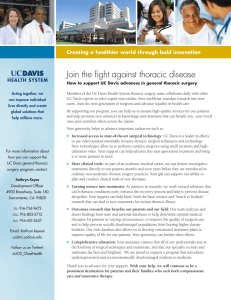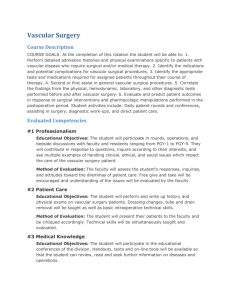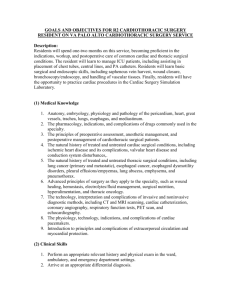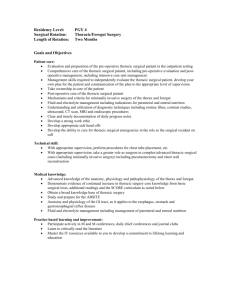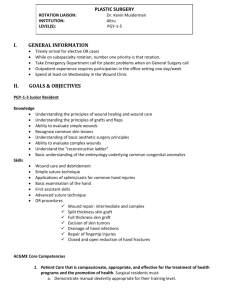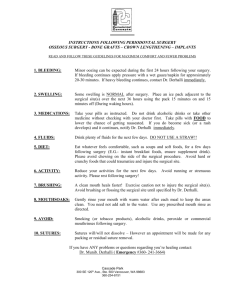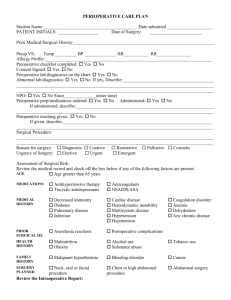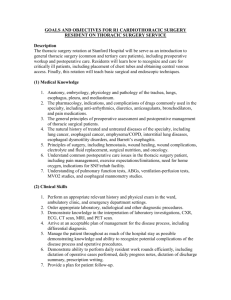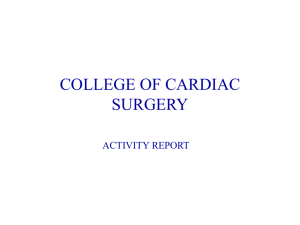Thoracic and Cardiovascular Surgery
advertisement
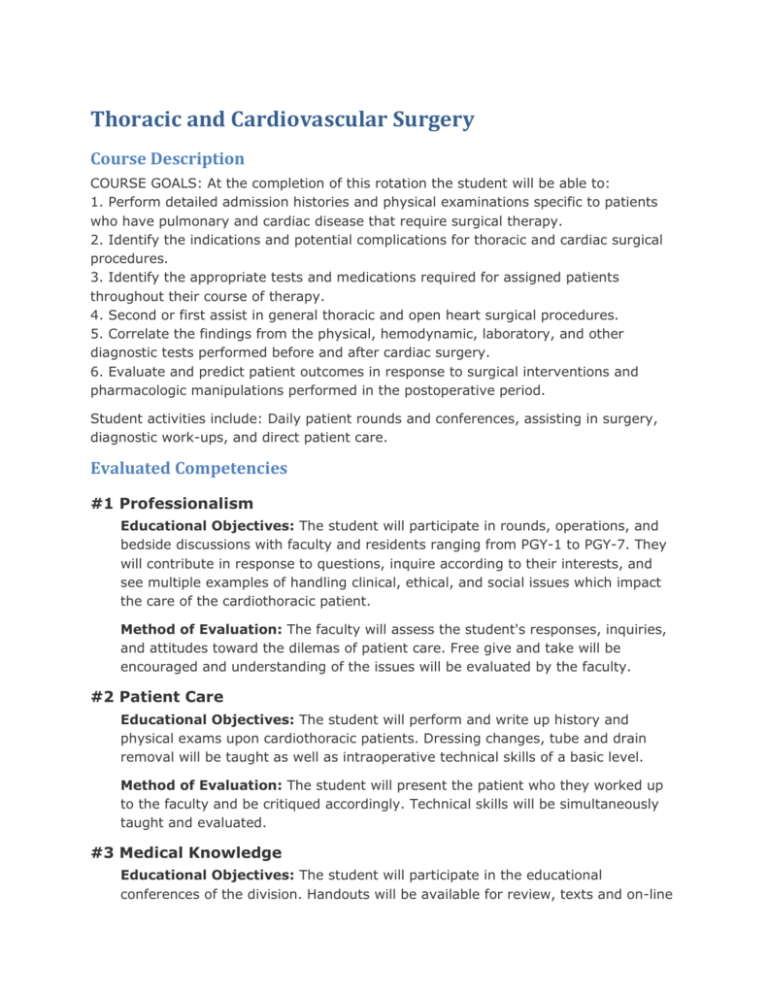
Thoracic and Cardiovascular Surgery Course Description COURSE GOALS: At the completion of this rotation the student will be able to: 1. Perform detailed admission histories and physical examinations specific to patients who have pulmonary and cardiac disease that require surgical therapy. 2. Identify the indications and potential complications for thoracic and cardiac surgical procedures. 3. Identify the appropriate tests and medications required for assigned patients throughout their course of therapy. 4. Second or first assist in general thoracic and open heart surgical procedures. 5. Correlate the findings from the physical, hemodynamic, laboratory, and other diagnostic tests performed before and after cardiac surgery. 6. Evaluate and predict patient outcomes in response to surgical interventions and pharmacologic manipulations performed in the postoperative period. Student activities include: Daily patient rounds and conferences, assisting in surgery, diagnostic work-ups, and direct patient care. Evaluated Competencies #1 Professionalism Educational Objectives: The student will participate in rounds, operations, and bedside discussions with faculty and residents ranging from PGY-1 to PGY-7. They will contribute in response to questions, inquire according to their interests, and see multiple examples of handling clinical, ethical, and social issues which impact the care of the cardiothoracic patient. Method of Evaluation: The faculty will assess the student's responses, inquiries, and attitudes toward the dilemas of patient care. Free give and take will be encouraged and understanding of the issues will be evaluated by the faculty. #2 Patient Care Educational Objectives: The student will perform and write up history and physical exams upon cardiothoracic patients. Dressing changes, tube and drain removal will be taught as well as intraoperative technical skills of a basic level. Method of Evaluation: The student will present the patient who they worked up to the faculty and be critiqued accordingly. Technical skills will be simultaneously taught and evaluated. #3 Medical Knowledge Educational Objectives: The student will participate in the educational conferences of the division. Handouts will be available for review, texts and on-line access will be taught so that the student can review, read and seek further information on diseases and operations. Method of Evaluation: Questions will be posed at the conferences and answers provided. This will be a round table discussion period and many responses will be considered and evaluated. Clinical scenarios will be outlined for courses of treatment. #4 Practice-Based Learning Educational Objectives: Students will learn how thoracic surgery residents learn about disease processes, operative techniques and board preparation. These models will aid the student in preparing for many other speciality or general medical problem solutions. Method of Evaluation: The attendance, willingness to put in long hours, and attitude toward learning will be assessed by the faculty and discussed with the student on a weekly basis. Their responses to constructive criticism, demonstration of initiatives beyond the norm, and willingness of interaction will provide a basis for evaluation. #5 Interpersonal and Communication Skills Educational Objectives: Rounding, assisting in the OR, and being a team member will be emphasized. Interaction with patients, patients' families, nurses, and physician extenders will be fostered. Method of Evaluation: Comments by all coming in contact with the student will be solicited and placed in context with the faculty's assessment of the student's ability to communicate and promote good team interaction. #6 Systems-Based Practice Educational Objectives: General problems leading to cardiovascular and pulmonary problems will be discussed at length. Transplantation and its effect on the patient and family will be observed. The impact of behavioral change on health care and postop recovery will be emphasized. Method of Evaluation: Interactive discussions will be held between the student, residents, and faculty to prioritize the health care options available to patients. The student's recognition of healthy living habits and their impact on the patient will be considered.
